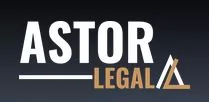An Australian State will become the first in the world to suspend all red light cameras and fines. It is one of the most shocking decisions taken by a Police force in recent memory.
Following a landmark Supreme Court decision, South Australia will indefinitely halt collecting fines for running a red light. It is unclear how long the suspension on fines will last, but it is expected to be for a significant period of time.
Police have also indicated that they will shut down 134 intersections once a month to test the cameras are in working order.
So how did this happen? And what are the implications for other states?
How did we get here?
Adelaide resident David Woolmer received a fine for running a red light. He chose to appeal the fine to the Magistrates Court – an option few take.
His defence was that the red light camera had not been tested in the past 28 days as was required.
Under the Road Traffic Act 1961 (SA) and section 56(1) of the Australian Road Rules, red light cameras are required to be tested every 28 days with a vehicle passing through while the light is red.
The Magistrate who initially heard the case found that it was unsurprising that a technician "did not conduct a test taking exposures of a vehicle turning right contrary to a red arrow, given the danger (and illegality) of such a test on one of Adelaide's busiest intersections, or the disruption that such a test would cause if traffic was stopped in all directions for the test to be conducted".
Rather than accept this verdict, Mr Woolmer appealed it on a point of law to the Supreme Court.
Supreme Court rules red light cameras do not comply with the law
Justice Greg Parker heard the appeal and took a different view.
He found the Magistrate had erred and dismissed Mr Woolmer's fine and conviction.
He agreed with Mr Woolmer's traffic lawyers that the red-light camera had not been tested while a vehicle actually passed through the intersection during a red light, as is required by the regulations.
Consequences
Immediately following the verdict, Police announced that all fines for running a red light that have been issued but not yet paid will not be collected. Further, no new fines will be issued until Police receive legal advice.
It was also announced that every 28 days, Police officers would be dispatched to close each intersection with a red-light camera so they can be tested.
In a public statement, Police said:
"The Supreme Court judgement requires a testing process involving police vehicles activating the red-light camera in controlled conditions...This will inevitably cause traffic obstruction, however, this is unavoidable and will be managed as safely as possible to minimise disruption. SAPOL will commence the closure of intersections to conduct drive-through tests in accordance with the judgement as soon as possible."
Despite the damning verdict, Police maintained that they had "absolute confidence" in the red-light camera system.
To put the verdict in context, there were approximately 23,500 fines issued for failure to comply with traffic lights between July 2019 and June 2020 with fines totalling $13.3 million.
Amending the law
The government is yet to comment, however they have not ruled out amending the legislation. Premier Steven Marshall confirmed that Police were obtaining legal advice on whether the legislation required amending.
This may appear to be a 'quick-fix' for the issue. Removing the requirement for the cameras to be tested by a vehicle passing through on a red light would eliminate the need for intersections to be closed down for testing.
However, the legislation would need to be drafted, approved by the government and then pass parliament.
Removing the requirement for red light cameras to be tested properly is unlikely to be politically popular and may not gain the required support to pass.
Implications for NSW and other states
Unsurprisingly, attention has turned to whether this judgement can be applied to other states.
Section 138(2) of the Road Transport Act 2013 allows the use of photographs from a red light camera if:
"a certificate purporting to be signed by an appropriate inspection officer...that certifies the following matters...
(a) that the person is an appropriate inspection officer in relation to the device,
(b) that on a day and at a time specified in the certificate (being within the period prescribed by the statutory rules, whether for a specified kind of device or generally, before the time recorded on the photograph or the earliest photograph as the time at which that photograph was taken), the person carried out the inspection specified in the certificate on the approved traffic enforcement device by means of which the photograph was taken"
Clause 35 of the Road Transport (General) Regulation 2013 requires red light cameras to be inspected every 30 days. However, they only need to be tested once a year.
There is no specific requirement for them to be tested by having a vehicle travel through the intersection during a red light. This is the same for speeding and mobile phone cameras.
However, this does not mean that Justice Parker's judgement has no application in other states. The strict application of the regulations that was used in that decision can be applied to testing requirements of red light cameras in NSW and other states.
Licence appeals
If you receive a fine for a red light camera (or any traffic infringement) and are at risk of losing your licence, it is important to speak to an experienced driver licence appeal lawyer immediately.
This is because depending on the type of licence you have and the nature of the infringement, there may be advantages in either paying or not paying the fine.
If you are a full licence holder and you pay the fine, you will incur the demerit points. If this takes you over the demerit point limit, then you will not have any right of appeal. You will need to elect the infringement to Court in order to avoid a demerit point suspension.
Conversely, if you are a provisional licence holder, then it would be advisable to pay the fine. This is because paying the fine will allow you to lodge a 'licence appeal' whereby the Magistrate will have the option of varying the suspension to a shorter period.
Should a provisional licence holder elect the fine to Court without paying the fine, the Court will lose the option of varying the suspension.
The content of this article is intended to provide a general guide to the subject matter. Specialist advice should be sought about your specific circumstances.

